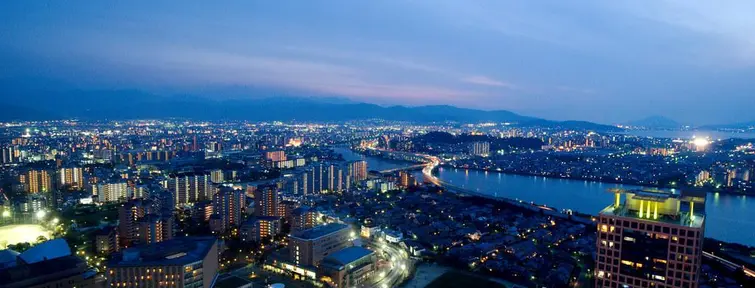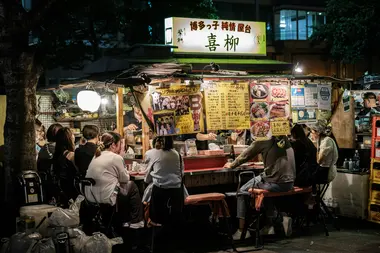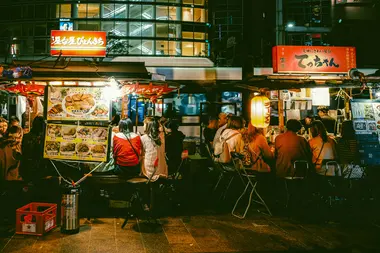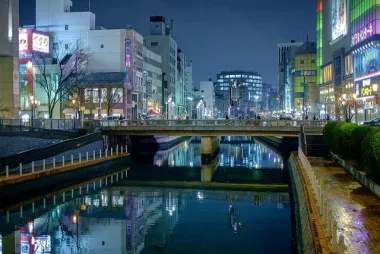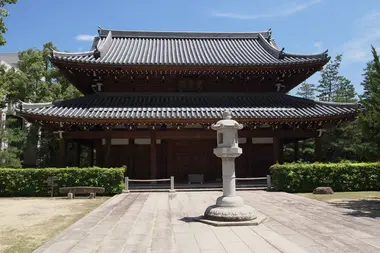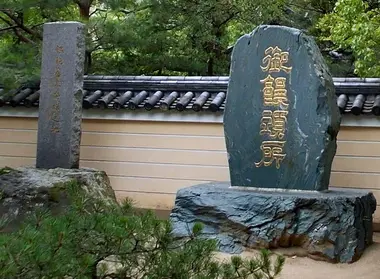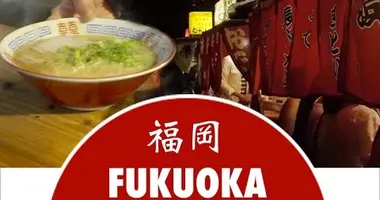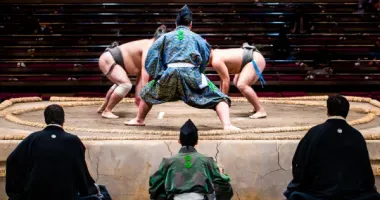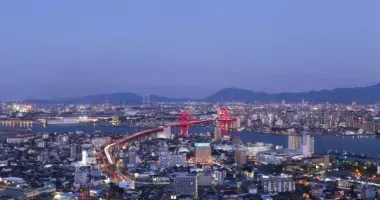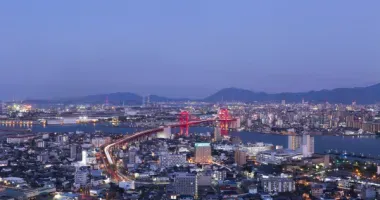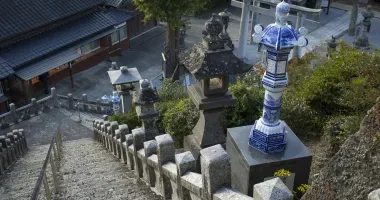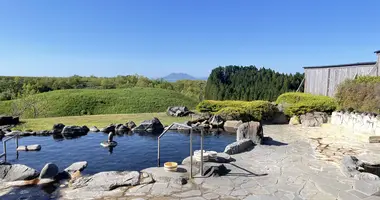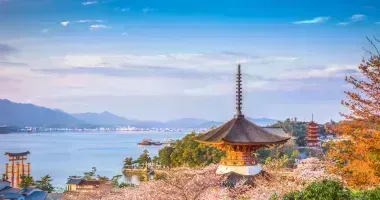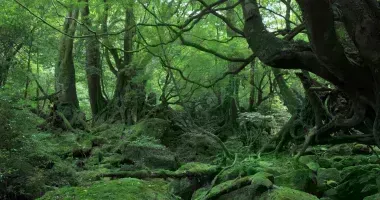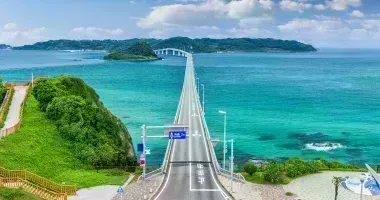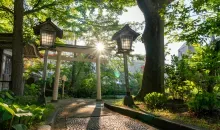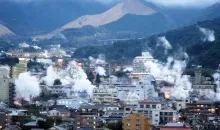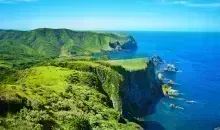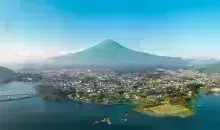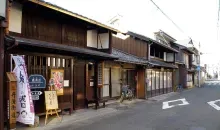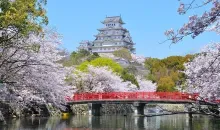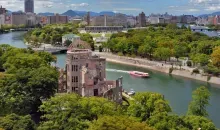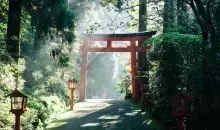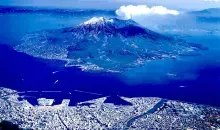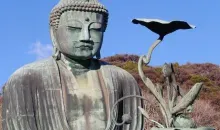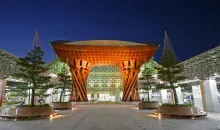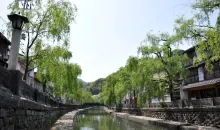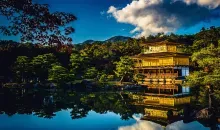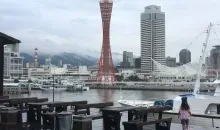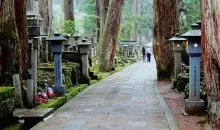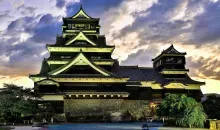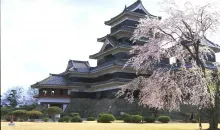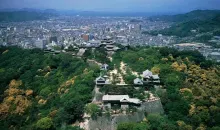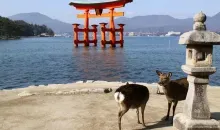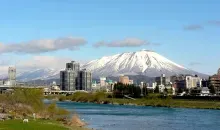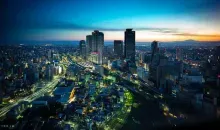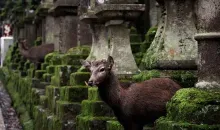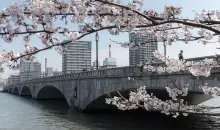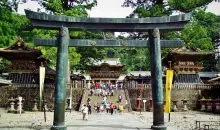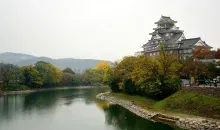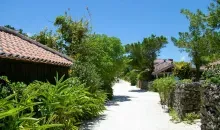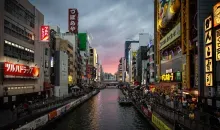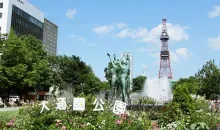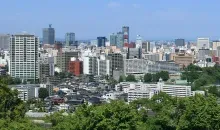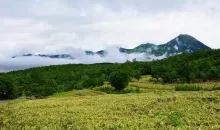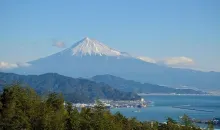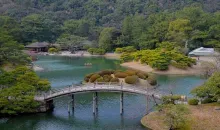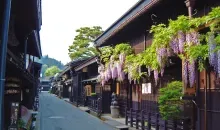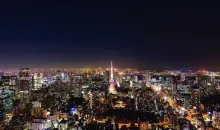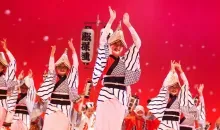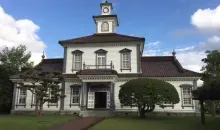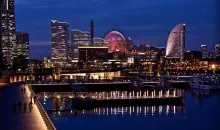Fukuoka
- Publicado el : 12/07/2017
- Por : G.L. / J.R.
- Youtube
Hora local 11:34
Symbol : sunny_cloudy
Temp : 20.1°C
Date : Miércoles
Symbol : sunny_cloudy
Temp : 25.7°C
Date : Hoy
Symbol : sunny_cloudy
Temp : 27.7°C
Date : Mañana
Symbol : cloudy
Temp : 25.9°C
Date : Sábado
Hora local 11:34
Symbol : sunny_cloudy
Temp : 20.1°C
Date : Miércoles
Symbol : sunny_cloudy
Temp : 25.7°C
Date : Hoy
Symbol : sunny_cloudy
Temp : 27.7°C
Date : Mañana
Symbol : cloudy
Temp : 25.9°C
Date : Sábado
Fukuoka, la capital del sur
Vibrante y soleada, agradable y gourmet, Fukuoka es el corazón económico y cultural de la isla de Kyushu. La mayor ciudad de la isla tiene una fuerte identidad, forjada por siglos de comercio con sus vecinos asiáticos.
La historia de Fukuoka
Fukuoka debe su sino a su situación geográfica: enclavada en la costa norte de la isla de Kyushu, frente a Corea del Sur y China, se convirtió rápidamente en la puerta de entrada de las influencias extranjeras en Japón. El sistema de escritura chino (los kanji) y el budismo pasaron por Fukuoka en el siglo IV antes de ser adoptados por el gobierno. También fue a través de Fukuoka que Kublai Kan, último emperador mongol, intentó invadir Japón en 1274.
Originalmente, la ciudad de Fukuoka estaba dividida en dos partes distintas, separadas por el río Naka:
- al norte, Hakata, el distrito comercial y popular
- al sur la ciudad señorial del clan Kuroda, Fukuoka
Las dos ciudades se fusionaron en 1889 y adoptaron el nombre de Fukuoka. Fukuoka, actualmente la octava ciudad más grande de Japón, con una población de más de 1,5 millones de habitantes, es una ciudad muy joven con un crecimiento dinámico.
¿Qué lugares visitar en Fukuoka?
Animado y relajado, el gran barrio de Hakata sigue siendo el corazón de la ciudad, el conservatorio de sus tradiciones. La estación de Hakata es, por así decirlo, el centro de la ciudad. Desde el festival de Hakata Gion hasta la jerga local y la artesanía, todo se explica en el museo folclórico Hakata Machiya.
No te pierdas Tenjin, el centro de negocios de la ciudad, que también alberga santuarios y un distrito comercial. No muy lejos se encuentra el pequeño distrito Daimyiō, un centro de moda con muchas tiendas de diseño. El distrito de Gion alberga algunas pepitas tradicionales.
Los amantes del mar podrán pasear por Momochihama, el distrito donde están la torre Fukuoka también la gran playa, muy conveniente si se visita la ciudad en verano.
"Yatai" food stalls of Fukuoka
Fukuoka is also famous for its unique set of stalls that serve up delicious street food, called yatai (屋台) in Japanese. With outdoor seating and hearty food staples like ramen, takoyaki, okonomiyaki, kushiyaki, and yakitori, these tasty gems of Fukuoka are great places to eat while also mingling with the local population. With a more intimate, open-air atmosphere, very few other spots offer a dining experience like one of these yatai. With a food culture as rich as Fukuoka's, there's no doubt that foodies should dedicate a dinner to one of these iconic pieces of the city's identity.
Fukuoka, la ciudad del ramen
Como Osaka, Fukuoka es ciudad de comerciantes y tiene una fuerte identidad culinaria. De esta ciudad procede el famoso ramen, esos deliciosos fideos chinos sumergidos en un caldo, acompañados de carne de cerdo, huevo o brotes de bambú marinados.
Casi todas las regiones tienen su propia receta de ramen en Japón. En Fukuoka, la especialidad es el tonkotsu rāmen (o hakata rāmen), preparado con un caldo de hueso de cerdo, una versión especialmente sabrosa del plato. Lo que hay que hacer: ir a degustar un cuenco en los yatai (puestos callejeros) de Nakasu (la pequeña isla cercana a la desembocadura del río Nakagawa). Siéntate un taburete frente a una de estas pequeñas caravanas a lo largo del río y déjate llevar por el alegre ambiente que anima a los amantes del rāmen.
¿Te gustaría probar alguno de estos famosos ramen? Descubre nuestras recomendaciones en la ciudad:
- Shin Shin, en el distrito de Tenjin (3-2-19 Tenjin, Chūō, Fukuoka, 810-0001)
- Hakata Issou, otra institución de la ciudad (3-1-6 Hakataekihigashi, Hakata, Fukuoka 812-0013)
- Hakata Ramen Zen, la opción barata (1-10-13 Tenjin, Chūō, Fukuoka, 810-0001)
¿Qué ver en Fukuoka?
Fukuoka es otra forma de conocer Japón. Más joven que Kioto, más relajada que Tokio, tiene un aire claramente sureño. La ciudad es también un buen punto de partida para explorar Kyushu. La forma más fácil de desplazarse es utilizar las tres líneas de metro que atraviesan la ciudad.
Así que no dudes en pasar unos días en esta increíble ciudad, especialmente en otoño o invierno, ya que el clima es suave y los ciruelos en flor son un hermoso espectáculo.
Yatai stalls can be found throughout the city, but one of the best locations to find them is on Nakasu Island, a prominent nightlife district. Yatai stalls are open late and offer food meant to satisfy the soul just as much as the stomach, indulgent and filling, often best enjoyed with a side of beer or sake. During the cooler months, warm oden, skewered foods simmered in rich dashi, are a great treat to warm you up and fill your belly.
Joten-ji and the temples and shrines of Hakata
The Hakata area of Fukuoka is well-known for a number of things. The aforementioned Tonkotsu Ramen is, of course, its most famous export, however, within the region itself, some of Japan's most storied history stands. The area has a high concentration of religious sites associated with Japanese Buddhism and traditional Japanese Shintoism, and Joten-ji is perhaps the most significant.
Construction for the temple finished in 1242. It's founder, Enni Ben'en mastered Zen Buddhism in China, and after a stint of study there, introduced what are now cultural and culinary staples to Japan.
The production of udon and soba noodles as well as mochi and manju are credited to the founder of this temple. Of course, the temple's signature Zen Buddhism elements are a major draw, such as the garden as well as the reconstructed gate built to the historic records.
Other notable religious sites in the Hakata Ward include Kushida Shrine, dedicated to the Japanese Shinto gods Amaterasu and Susanoo, and Tochoji Temple, famous for its multi-tiered, crimson pagoda.
Si te interesa Fukuoka
Descubre y explora otras ciudades
